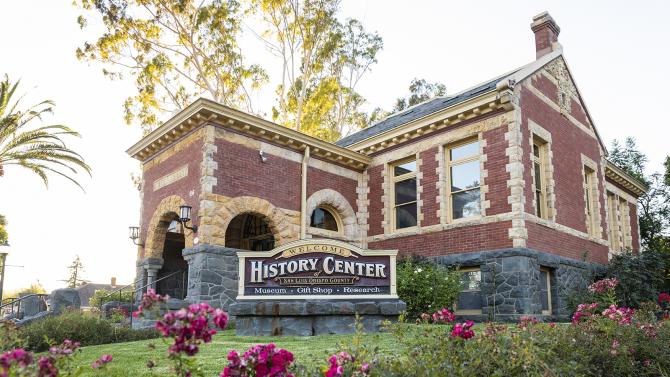History
College of Liberal Arts
Historians study the past in all its variety and complexity. Although the lessons to be learned from the past are rarely simple, solutions to present-day problems rest on comprehension of historical forces and events.
San Luis Obispo, California
Build your historical analysis, research, and writing skills through core classes including an introduction to historical research skills, a two-part sequence of small discussion courses and a senior project.
About the Program
History deepens your understanding of other peoples and cultures, sensitizing you to the complexities of the past and empowering you with a contextual understanding of the world today.
You will learn to gather, organize, analyze and interpret evidence and become skilled at presenting your conclusions in a clear and logical manner. From Nazi Germany and Modern America to Colonial Latin America and Ancient Rome, you will experience a wide variety of history elective courses and develop a senior project of your own choosing. The flexibility of the degree also allows you to explore other intellectual passions and combine your degree with minors such as entrepreneurship, science, technology and society, economics, or law and society.
Learn by Doing
Beginning your very first quarter, you will have the opportunity to participate in history, by engaging in original archival research, contributing to our award-winning student journal, and interning with historical societies and other non-profits around California. These opportunities allow you to put your historical research, analysis, and writing skills to work. They also allow you to develop close relationships with faculty who are both passionate teachers and active researchers recognized as experts in their fields.

Intern at a Museum
Our Graduates
Our alumni work in almost every conceivable field, including tech, business, banking, law, state and local governments, museums, non-profits, and teaching. Many of our alums go on to graduate programs including law, international affairs, higher education administration, museum studies, and, of course, history.
